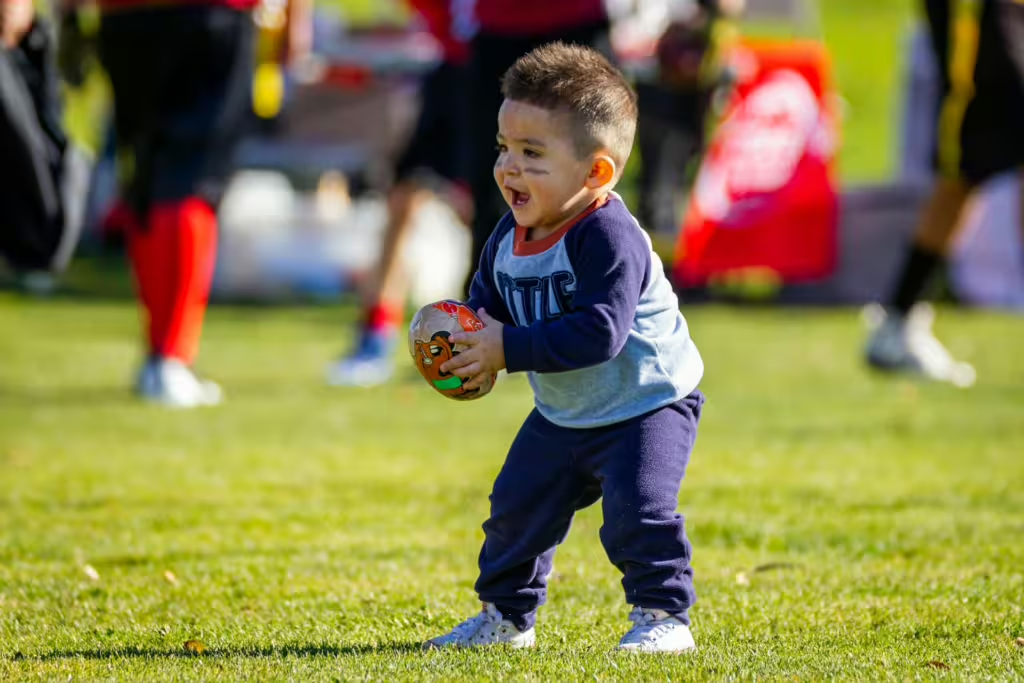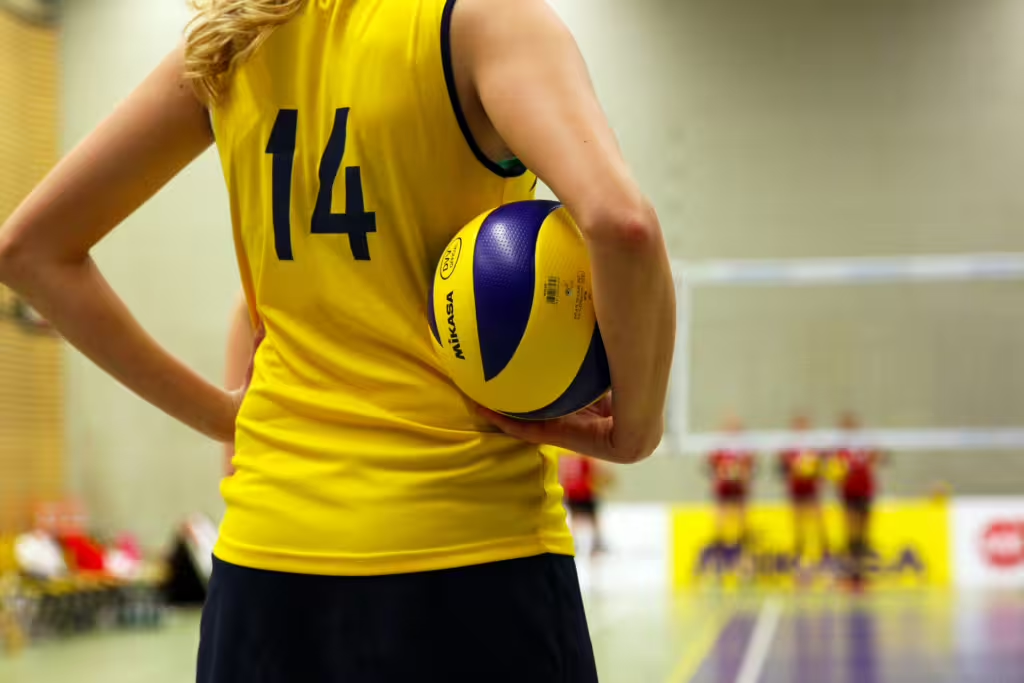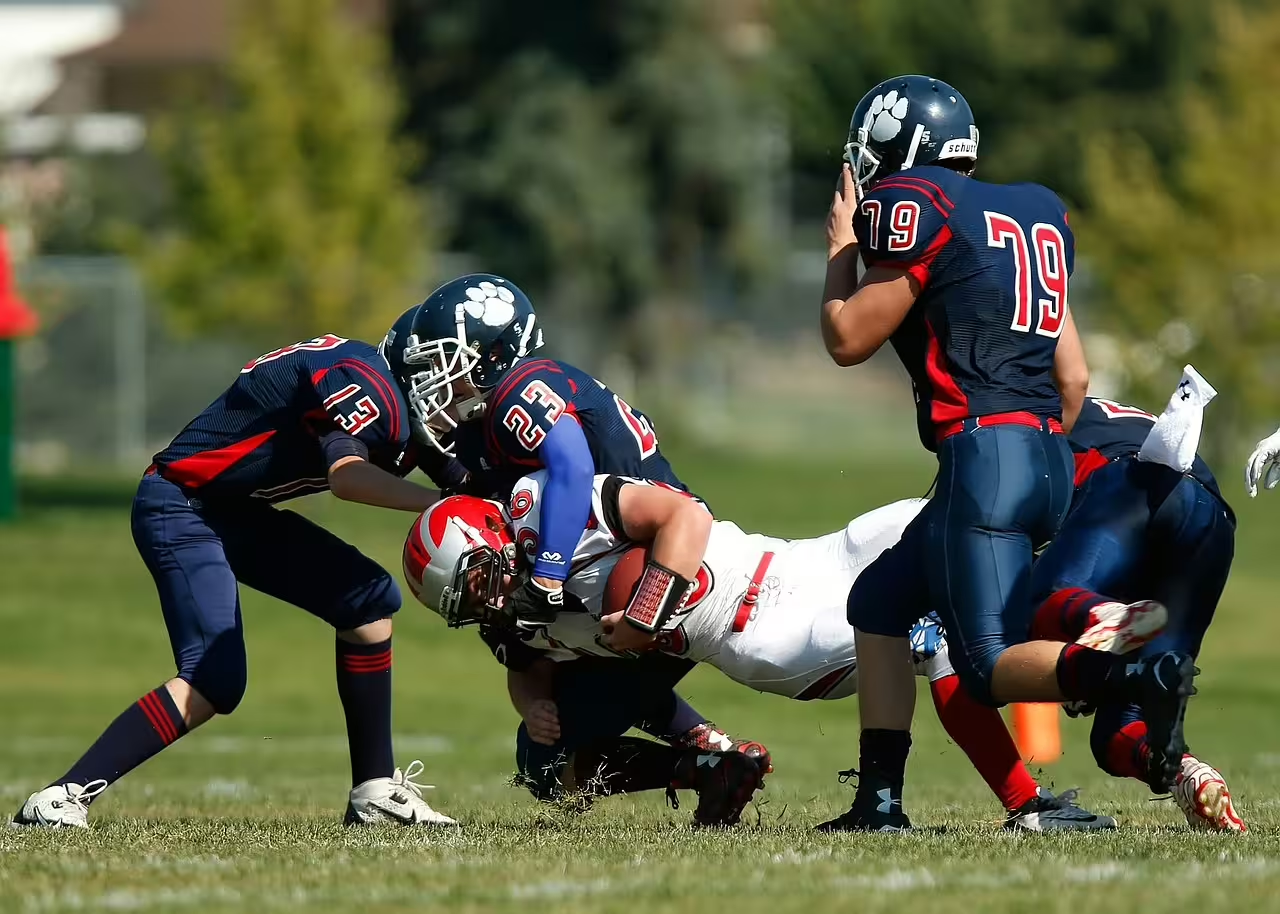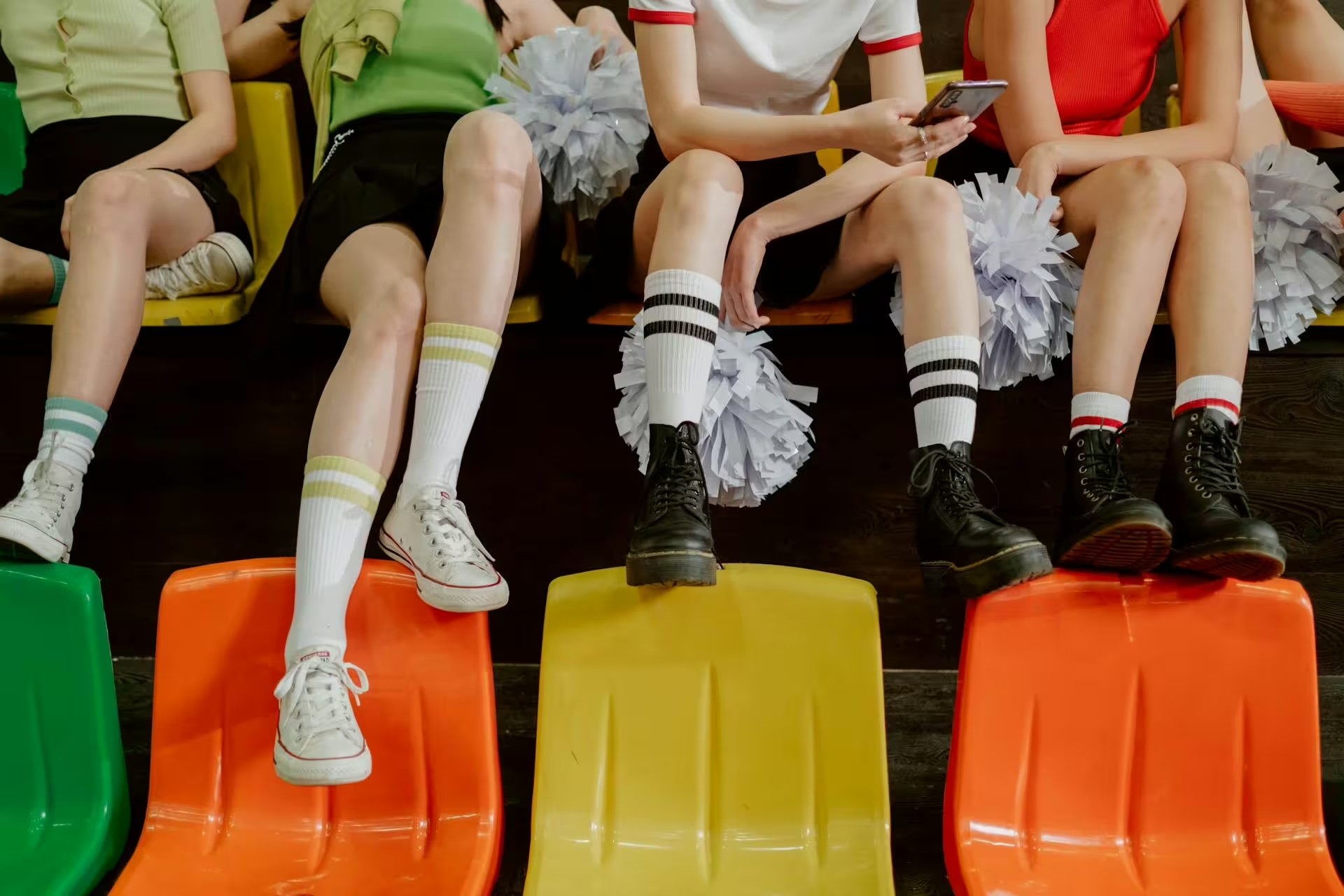For young children, playing sports is as. much about mentality as it is physicality. Though most kids aren’t aware of their own mindset and emotions during a game, the fact remains that the way they perceive a given competition will heavily influence how they end up playing in that competition.
In many ways, it’s just as difficult for parents to believe that playing sports is about more than running fast, scoring goals, or hitting home runs. We get in our own heads about our misconceptions or we forget that when we played sports, we also got caught up in the mindset just as often as we did the rush of play itself.
Mental strength—the ability to focus, stay positive, and keep going even when things get tough—can make a huge difference in how well a person plays a game. Yet, when we prepare our kids for game day or practice, we tend to forgo any mental conditioning save “remember to stay positive” or “do your best.” These platitudes do little to help children get into the proper mentality, even if they help to manage frayed emotions. The good news is that, just like muscles, mental strength can be trained and improved with practice.
In this article, we will explore the importance of mental strength when it comes to sports. At the same time, we will dive into how mental strength works and how you can apply it to teaching your child to become a better athlete.
What Is Mental Strength?
When we talk about mental strength, we are discussing all of a person’s thoughts, emotions, and attitude. Having mental strength allows athletes to be more confident, stay focused, and keep calm during games and practices. One of the best way to describe this using a modern colloquialism would be to say an athlete is “in the zone.” When a player is “in the zone” their mind and body are working together perfectly, and this tandem, athletic unity is all thanks to mental strength.
A good way to help your child imagine mental strength is to have them think of it as a sort of internal coach; a guiding voice that not only encourages them to push through challenges, like missing a shot or losing a game, but helps them to bounce back stronger even after they’ve made a mistake. In the same way, this inner coach might help young athletes to see plays, saves, or opportunities that they would not have considered had they not had their mind so focused on the sport at hand.
Why Mental Strength Matters in Sports
Improves Focus:
Children get distracted by the most minuscule of contrivances and in sports, where your mind has to be on the ball as often as possible, the distractions can be even more prevalent. Loud crowds, tough opponents, interesting birds, the smell of hot dogs, the ice cream man’s siren song, or even a player’s own nervous thoughts can all distract a young player’s mind. Having a solid degree of mental strength helps kids block out distractions and stay focused on the game.
Builds Confidence:
Unearned confidence is one thing that children usually have in spades, but most of that confidence ebbs away the moment they get onto the playing field, Finding true self-confidence, however, that is to say the belief in one’s own abilities, even when things don’t go perfectly, that’s a bit harder. Mental strength helps in this regard as well, by reminding children that they are capable, even good at what they do, thus helping them play at their best.
Helps Handle Pressure:
Big games can be scary events, not only in the days and weeks leading up to the event, but especially on game day itself. Mental strength helps kids to stay calm and think clearly, even when stressful moments loom large.
Encourages Perseverance:
There are going to be days where your child just doesn’t want to play. Maybe they are struggling with something at school, having an argument with friends, or reeling after a string of bad games. The point is, every athlete faces tough times, now and then. Having mental strength keeps kids motivated during those uncertain times, and ensures that the drive to keep trying and learning remains strong.

How to Build Mental Strength
Building mental strength works just like physical training, in that it takes practice. Here are some simple tips to help you and your child get started:
Set Goals
Every parent should be comfortable setting athletic goals for their kids. Not like “get into the Olympics,” “become LeBron James,” or anything of that nature, mind you. But goals are good for young athletes. Goals give children something to work toward, and the more specific, the better. For instance, instead of saying, “I want to be better at soccer,” try having them set a more specific goal such as, “I want to practice penalty kicks for 20 minutes every day.” Achieving small goals can boost one’s confidence and keep them motivated.
Practice Positive Self-Talk
When it comes to self-talk, what your child says to themself matters a great deal. As parents, we want to set a good example by not only practicing our own positive self-talk, but encouraging them to the same with words of encouragement and the like. For example, teach your child that whenever they start thinking something like, “I’ll never make this shot,” they should instead tell themselves “I’ve practiced this. I can do it!” Positive self-talk can replace doubts with confidence and help kids to stay focused on the game.
Visualize Success
Before a game or practice, sit with your child and take a moment to help them imagine themself doing well. Have them picture themselves scoring a goal, making a great pass, or hitting a home run. Visualization helps our brains get ready to perform and can set them up for success in the tasks to come.
Learn from Mistakes
This one is a toughie, but it’s an essential piece of knowledge that evert young athlete must one day make peace with; everyone makes mistakes, even the best athletes in the world. When your child does this, and they will, try and be understanding, but also try and refocus their thoughts. For instance, instead of getting upset, have your kid think about what they can learn from the mistake. Teach them to ask themselves, “What can I do better next time?”
Stay Calm Under Pressure
Some people believe that allowing kids to play sports is to invite just another piece of unnecessary pressure into their lives. Those people don’t understand that while pressure is part and parcel to any youth enterprise, we as parents can control how much pressure we put upon our young athletes. It is normal for a child to feel nervous about joining a new sport, meeting a new team, learning a new skill, or playing in the big game. The trick is to give them the mental strength to stay calm in these situations and not overthink them. If your child is nervous, have them try deep breathing exercises; do it with them if it helps! Take a slow breath in for four seconds, hold it for four seconds, and exhale for four seconds. This can help both of you to relax and focus.
Focus on What You Can Control
Even many adults don’t really understand this coping mechanism. We obsess over things we cannot control and try to fix things that we have no power to fix. When it comes to sports, there are things that are out of our control, but there are just as many things that athletes do have a say over within their own sphere of influence. Sure, they cannot control the referee’s decisions or how well their opponent plays, but they can control their own degree of effort, their attitude, and the strategies they wish to employ.

Fun Mental Strength Exercises for Kids
Below, we have listed a few ways that parents and coaches can help kids to build mental strength in a fun and exciting way. After all, building mental strength doesn’t have to be boring!
The “What If” Game
Have your kids imagine different situations that might happen in a game, like missing a shot or playing against a tough opponent. If they tend to come up with negative scenarios, refocus them on more positive trains of thought. The point of the exercise is to have them practice thinking of positive ways to handle negative situations. For example:
- What if I miss a free throw? “I’ll take a deep breath and focus on my next shot.”
The Focus Challenge
This is one that can be done as a team. First, try and distract your kid while they are practicing a skill, like dribbling a basketball or juggling a soccer ball. This will help them to stay focused. The point is to strengthen their ability to focus and do so for as long as they can.
Gratitude List
Have your child write down three things that they are grateful for about their sport. This can help children stay positive and appreciate the fun parts of playing without being bogged down by their own negativity.
Overcoming Common Mental Challenges in Sports
Fear of Failure
Every child is going to grapple with the fear of failure at one time or another. It is up to us as adults to teach them that it’s okay to make mistakes. These foibles and missteps are part of learning! So, instead of being afraid to fail, we should have our kids focus on doing their best and, more important than anything else, having fun.
Comparing Yourself to Others
We understand that every athlete is unique, but kids have an almost innate desire to be like their friends, teammates, or classmates. We just need to teach them that, rather than comparing themselves to teammates or opponents, they ought to focus on improving their own skills.
Feeling Nervous
Being a little nervous can be a good thing. Being nervous about the outcome of a game means that they care about that game. Teach your children to use this nervous energy as fuel to help them play at their best.
How Coaches and Parents Can Help
As you might expect from the tone of this article in general, coaches and parents play a big role in building mental strength in a young athlete. Here are some more ways that influential adults can help build this trait in young athletes:
- Encourage a Growth Mindset:
Teach kids that effort and practice will ultimately help them improve, even if they don’t succeed right away. - Praise Effort, Not Just Results:
Have kids focus on hard work and progress, rather than just winning. - Be a Good Role Model:
Show kids how to stay calm, positive, and resilient, especially during low points and challenges.

Mental Strength Off the Field
One of the best things about mental strength is that it doesn’t just help children on the sports field. Having mental strength will undoubtedly come in handy in their everyday life as well. Whether it’s studying for a test, learning a new skill, or dealing with tough situations, mental strength helps children to stay determined and focused in all their youthful endeavors. It will also help them in their future careers, relationship, education, and leisurely pursuits as well.
Sports That Demand Extra Mental Strength
While mental strength is important in all sports, some sports require an extra level of mental toughness. These sports present unique challenges, testing an athlete’s focus, determination, and ability to stay calm under pressure in ways that often go beyond the physical.
Gymnastics
In gymnastics, young athletes often perform routines that demand precision and perfection. Not only can a single misstep can make or break a performance, gymnastic routines can be highly dangerous to perform. The trick is to help children focus and remain calm at every step. That way, if they do make a mistake, they can correct it without breaking down, giving up, or hurting themselves when they attempt it the next time.
Distance Running
Long-distance running, like marathons or cross-country races, are often a true test of mental endurance. Runners face numerous distractions and hardships, such as physical fatigue, tough weather conditions, and the mental challenge of pushing through pain and exhaustion. This means that remaining positive, focused, and keeping an eye on the finish is more important than in other sports.
Cultured Athlete Says…
As you can see, being a great athlete isn’t just about physical skills—it’s also about having the mental strength to get through the other aspects of sports that we often overlook. By helping your child to practice focus, positivity, and perseverance, you will enable them to boost their game and have more fun playing sports!
Discover more from CulturedAthlete
Subscribe to get the latest posts sent to your email.






